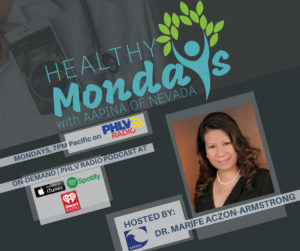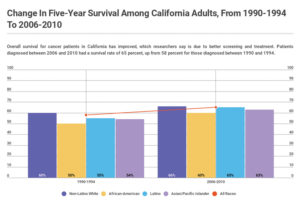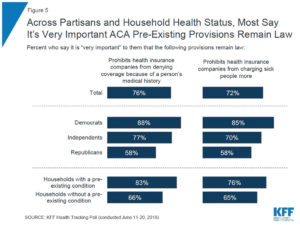
New study: taking aspirin daily does not reduce chance for heart problems
A LONG-standing theory that taking a low-dose aspirin every day will cut the chances of a heart attack, stroke or other heart problems has been debunked by a new major…
Covering the most noteworthy news stories in the health and wellness industry for the Filipino community.

A LONG-standing theory that taking a low-dose aspirin every day will cut the chances of a heart attack, stroke or other heart problems has been debunked by a new major…

The Asian American Pacific Islander Nurses Association (AAPINA) of Nevada has the “Healthy Mondays AAPINA of Nevada” radio program with PHLV Radio every Monday from 7:00 – 7:30 p.m, which…

by Anna Gorman AS he grew older, Dale Kunitomi paid closer attention to his health — and to his doctor’s advice. When he noticed rectal bleeding in 2010, he went…

THEY say we start aging at 30. Now if you are in your 40s to 60s, that would mean about 10 to 30 years of aging process. But do we…

KIDS are heading back to school starting this week, and the task of packing their lunches falls on their parents again. As much as they want their children to eat…

FILIPINO food has, without a doubt, been heating up in the U.S. with Filipinos and non-Filipinos alike enjoying the burgeoning scene on both coasts. But while dishes like chicken adobo,…

Unpacking the Filipino community’s rocky relationship with mental illness acceptance HISTORICALLY, the study of mental illness has often been referred to as “abnormal psychology.” But according to the World Health…

THE growing Asian American and Pacific Islander (AAPI) population in the U.S. is very diverse — encompassing a large number of unique ethnic identities with their own cultures, languages, and…

Debbie Dobrosky noticed a peculiar hue in the sky on Monday — “a very ugly yellow casting” — as she peeked outside. A large cloud of smoke had begun to cover…

by Julie Appleby and Alex Leeds Matthews THE planned expansion of short-term health plans under a new Trump administration rule unveiled this week is on a crash course with a brick wall in…
by Michelle Andrews As students enter college this fall, many will hunger for more than knowledge. Up to half of college students report that they were either not getting enough to…

by Alex Smith Jose Belardo of Lansing, Kan., spent most of his career in the U.S. Public Health Service. He worked on the front lines of disasters in such other…

by Chad Terhune SAN FRANCISCO — Stepping into the land of the Trump resistance, Seema Verma flatly rejected California’s pursuit of single-payer health care as unworkable and dismissed the Affordable…

by Jordan Rau Kaiser Health News Most nursing homes had fewer nurses and caretaking staff than they had reported to the government, according to new federal data bolstering the long-held…
The U.S. Food and Drug Administration (FDA) is alerting health care professionals and patients of a voluntary recall of several drug products containing the active ingredient valsartan, used to treat…

by Judith Graham California Healthline THE kidney doctor sat next to Judy Garrett’s father, looking into his face, her hand on his arm. There are things I can do for…

by Blake Farmer Nashvilla Public Radio VICKI Bartholomew started a support group for wives who are caring for a husband with Alzheimer’s disease because she needed that sort of group…

Los Angeles County is facing a public health crisis: More than one-quarter of its 53,000 homeless residents struggle with mental illness. “When you’re homeless on the street, your life is…

by Jordan Rau Even as many Republicans continue to back a repeal of the Affordable Care Act, a majority of GOP voters want to retain a core consumer protection of…

by Christina Jewett and Shefali Luthra As the White House faces court orders to reunite families separated at the border, immigrant children as young as 3 are being ordered into court for…

California’s cities and counties will be barred from adopting soda taxes for the next 12 years under a legislative deal that marks a big victory for the influential beverage industry…
by Chad Terhune, Pauline Bartolone,Ana B. Ibarra and Alex Leeds Matthews IN the state that’s leading the opposition to many of President Donald Trump’s health policies, California voters will face a stark choice…

A new study shows that many people in the early stages of breast cancer with lower likelihoods of recurrence may safely abstain from chemotherapy A majority of early-stage breast cancer…
by Pauline Bartolone The person who wins the four-way race to become California’s next insurance commissioner will inherit a job with broad authority over policies that cover homes, businesses, cars…

Attorney General Xavier Becerra uses a well-worn refrain to describe his role as the state’s chief law enforcement officer: to defend California’s values. “If that translates into fighting Donald Trump,…

SADHC and its wide range of services are free to anyone who has Medi-Cal Whether you are a senior citizen or a seriously injured individual, boredom can creep up on…

by April Dembosky, KQED Covered California, the state’s health insurance marketplace under the Affordable Care Act, has devised what could be a powerful new way to hold hospitals accountable for…
What is passive smoking? Secondhand smoke is the fume that one involuntarily inhales after someone who smokes exhales it (called mainstream smoke), or the fume that goes directly to the…

California’s children’s hospitals say they’re struggling to keep up with advances in medical care and a growing demand for their services, and they’re asking taxpayers to help — again. The…

Just as cigarettes finally dropped in popularity, vaping came around and somehow made tobacco cool again. From 2011-2015, the use of e-cigs among high school students increased nationwide from 1.5…